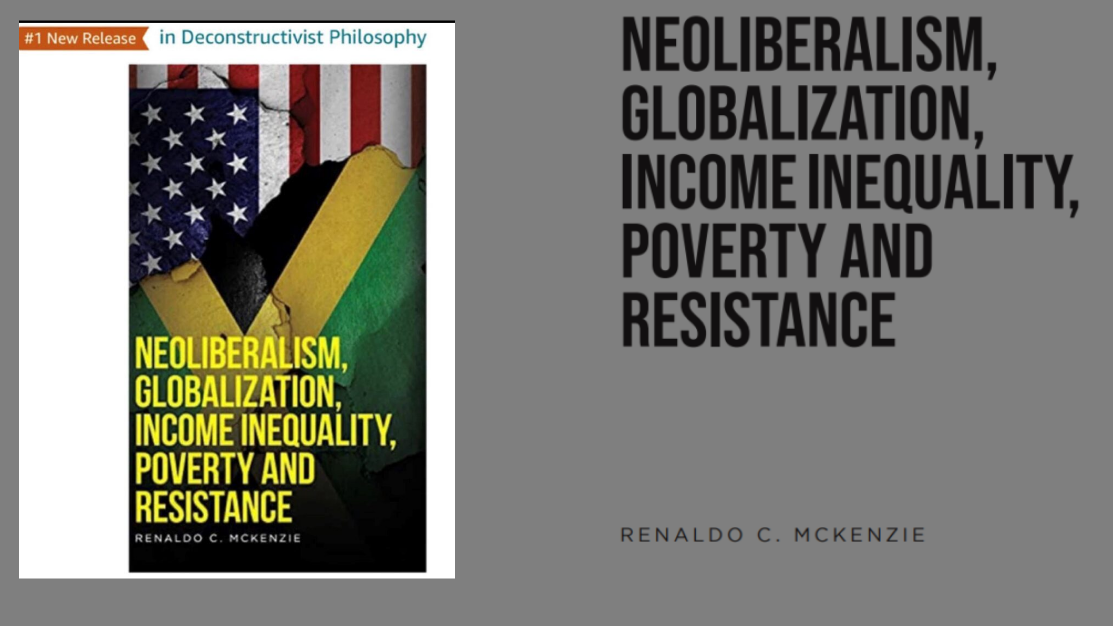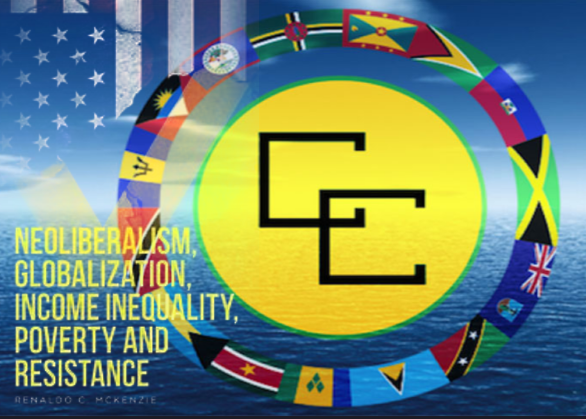Introduction:
In the lecture titled “Globalization, Nationalism, and the Challenges of Jamaica’s Development,” Renaldo McKenzie provides an insightful analysis of the impact of globalization on Jamaica [and by extension the Caribbean] and reflects on the country’s current standing in the global landscape. Through an exploration of the film “Life and Debt” and various historical and sociopolitical contexts, McKenzie highlights the complex interplay between globalization, nationalism, and the pursuit of sustainable development in Jamaica, the Caribbean and the Global South.
Globalization and its Opportunities:
McKenzie acknowledges that globalization has brought forth significant opportunities for growth, investment, and the transfer of knowledge and technology. He recognizes that Jamaica, like many other countries, has benefited from these opportunities to some extent. The influx of tourists, foreign direct investment, and access to global markets has contributed to economic development and improved living standards for some Jamaicans.
The Influence of International Financial Institutions:
However, McKenzie also sheds light on the influence of international financial institutions, particularly the International Monetary Fund (IMF), on Jamaica’s economic policies. He mentions an ongoing IMF staff-monitored program, highlighting how the country is still adhering to the recommendations and conditions set by the IMF. This reveals the continued impact of external forces on Jamaica’s economic decision-making processes, even without direct financial assistance.
Socioeconomic Challenges:
McKenzie further discusses the socioeconomic challenges faced by Jamaica, such as violent protests, higher taxes, and escalating fuel prices. These events reflect the grievances and frustrations of the Jamaican people, particularly those burdened by poverty. The struggles for economic stability and self-sufficiency persist, with limited resources and a small land area posing additional obstacles to progress.
Nationalism and Identity:
The lecturer delves into the concept of nationalism and its significance in Jamaica’s development. He draws attention to the juxtaposition of perspectives in “Life and Debt,” where tourists are portrayed as privileged and carefree while locals are depicted as facing struggles and violence. This contrast reflects deeper issues of identity and power dynamics between visitors and Jamaican citizens, reinforcing the need for self-determination and control over their own destiny.
Reflections on Jamaica’s Development:
In contemplating the current state of Jamaica, McKenzie highlights the disconnection between the Jamaica portrayed in “Life and Debt” and the reality that exists today. He laments the missed opportunities and challenges the country faces in achieving its full potential. He emphasizes the importance of strategic thinking and negotiations with global institutions, urging Jamaican policymakers to prioritize the interests of their nation and people.
Conclusion:
The lecture provides valuable insights into the complex dynamics of globalization, nationalism, and the challenges of Jamaica’s development. It highlights both the opportunities and limitations brought about by globalization, with a particular focus on the influence of international financial institutions. Through a critical examination of Jamaica’s history and socio-economic landscape, McKenzie urges policymakers to prioritize national interests and engage in strategic negotiations to shape the country’s future.
As Jamaica continues its journey towards sustainable development, it must strike a delicate balance between embracing global opportunities and asserting its autonomy. By fostering a strong sense of nationalism, addressing socioeconomic disparities, and advocating for inclusive policies, Jamaica can navigate the challenges posed by globalization and shape a future that reflects the aspirations and needs of its people.

Renaldo McKenzie is Adjunct Professor at Jamaica Theological Seminary, Author of “Neoliberalism, Globalization, Income Inequality, Poverty and Resistance,” and the upcoming book: “Neoliberal Globalization Reconsidered, Neo-Capitalism and the Death of Nations,” with contributions by Professor Emeritus Dr. Martin Oppenheimer. Renaldo is also a Doctoral Student at Georgetown University and Lectures Caribbean Theology and Caribbean Thought at Jamaica Theological Seminary and is developing an Academic Journal of Young Academics and conducting research on how attitudes are changing in Jamaica and Caribbean….
Neoliberalism in Audible and is available in eBook, Paperback and Hardcover at The NeoLiberal Bookstore and The NeoLiberal Shop also at Amazon, Barnes and Noble, Walmart and Target etc.

The video of the lecture is available on YouTube and also in audio podcast on any stream.
We also published a version of this post in The NeoLiberal Commentary a publication made possible by LinkedIn and is created and managed by Renaldo McKenzie at The NeoLiberal Corporation, serving the world today to solve tomorrow’s challenges by making popular what was the monopoly.
Submitted by Donte Nelson at The Neoliberal Corporation
Email us: [email protected]

The NeoLiberal Journals – The NeoLiberal Corporation
Error: Contact form not found.

